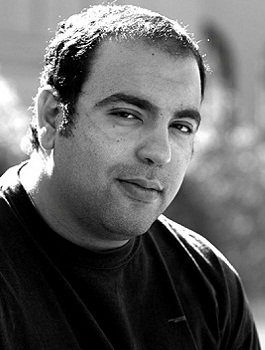As war continues to rage uninterrupted in Yemen and the country spirals into chaos, a humanitarian ceasefire has become an ever more pressing need to tend to the swaths of the civilian population devastated in the wake of the increasing militarisation that are in need of urgent middle care.
Restrictions on access to medical supplies and care are key impediments in improving the situation of people in need. A five-day humanitarian ceasefire would allow supplies and the necessary medical care to reach people and relieve their dire health situation.
The conflict has increasing exceeded the proper field of war as attacks on health facilities continue. Last October, the World Health Organisation (WHO) condemned the bombing of a Medécins Sans Frontières (MSF) supported hospital in the Sa’ada governorate in northern Yemen. As a consequence of the attack, MSF believes that 200,000 people were left without medical care. That attack was the second one on an MSF-run facility with the span of a month.
Since the beginning of Saudi Arabia’s military intervention in Yemen, undertaken with support from the United States, more than 5,700 persons have died, of which almost half have been civilians. Additionally, there have been 28,753 injuries reported. Several health workers have also been killed and 47 health facilities in 11 governorates have been damaged or closed as a result of the unabated violence.
Health care services in all public hospitals have been reduced, especially those with operating rooms and intensive care units. Additionally many hospitals, laboratories, health warehouses, and administrative offices have closed. Primary care facilities have minimum access to medicine, supplies, and equipment. Fuel shortages have affected the proper operations of ambulances.
At the same time, disruption in immunisation procedures has increased the risk for the spread of contagions, notably measles and poliomyelitis. Yemen is presently free of polio.
So far, there are more than 2.5 million people who have been internally displaced. The interruption in immunisation has particularly affected this population who are living in close quarters in overcrowded communities.
The collapse in water and sanitation infrastructure has provided a context for the spread of diseases such as malaria and dengue fever, as well acute diarrheal diseases that particularly affect children. Also because of the existing limitations and damage to the communication network, the early warning alert system for diseases has been ineffective in instituting preventative measures. Because many Yemenis store water in open containers, that becomes an ideal breeding ground for disease-transmitting mosquitoes.
Yemen has one of the highest rates of chronic malnutrition in the world. According to Unicef, 1.3 million Yemeni children younger than five years old now suffer acute malnutrition compared to 850,000 before the war started. There are 320,000 who are severely malnourished, twice the amount before the crisis. The little cash people have is used to pay for food and gas, at increasingly exorbitant prices due to the dearth of both, leaving no money to afford health care.
“The Lancet” reports that approximately a quarter of the country’s health care facilities are no longer functional. To make matters worse, as Ronald Kremer from MSF says, “People do not dare to go to hospitals because they are afraid that they are targeted and, even if they want to go they may not have the means—even where public transport does exist, it is very expensive because of the fuel problems.”To attend to the myriad health issues, a humanitarian ceasefire is urgently needed. A five-day-pause, as proposed by WHO, would allow humanitarian organisations to respond to some of the most life-threatening needs of the people, particularly women and children caught in the middle of the conflict.
An MSF doctor taking care of a badly hurt child in Syria realised that the child was desperately trying to tell him something. When he asked his translator what the child was saying, the translator responded, “Don’t they realise that we are children?” A similar question could be asked in Yemen today.
Dr. César Chelala is an international public health consultant and a winner of several journalism awards.




